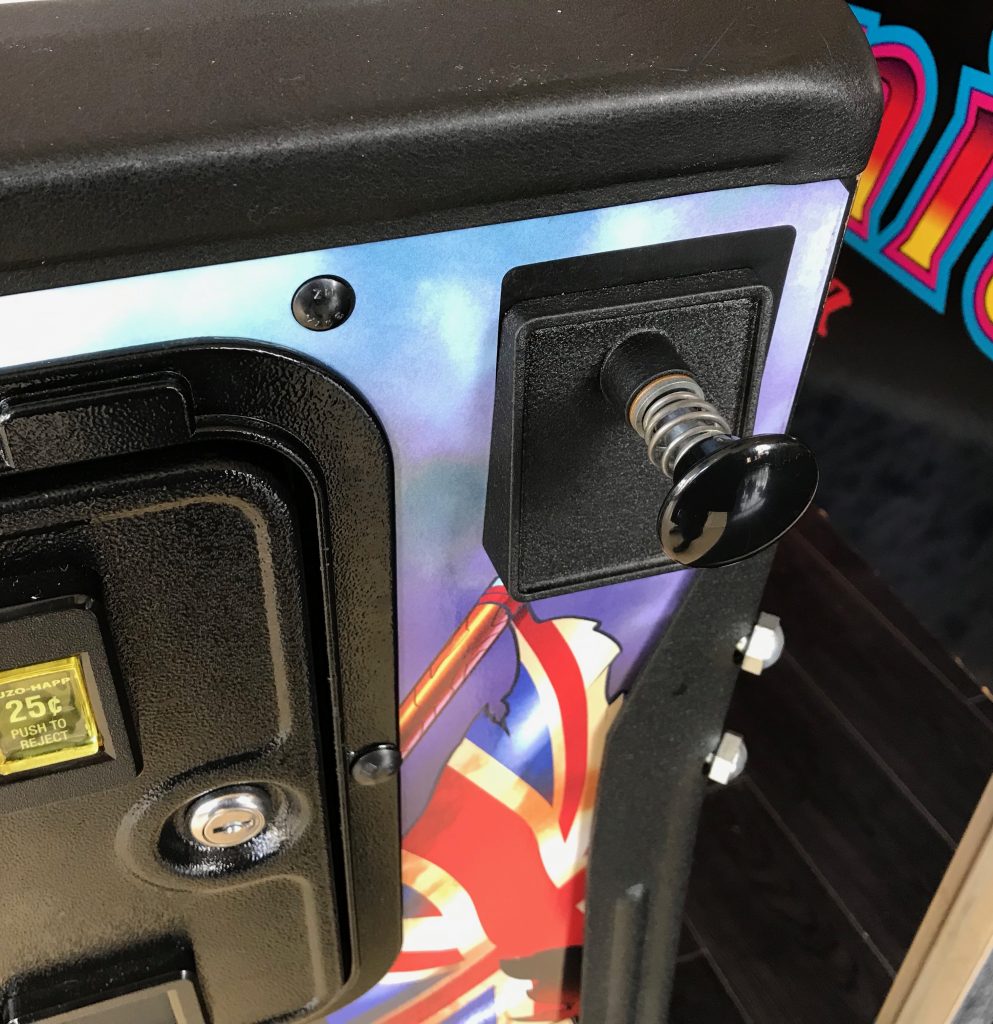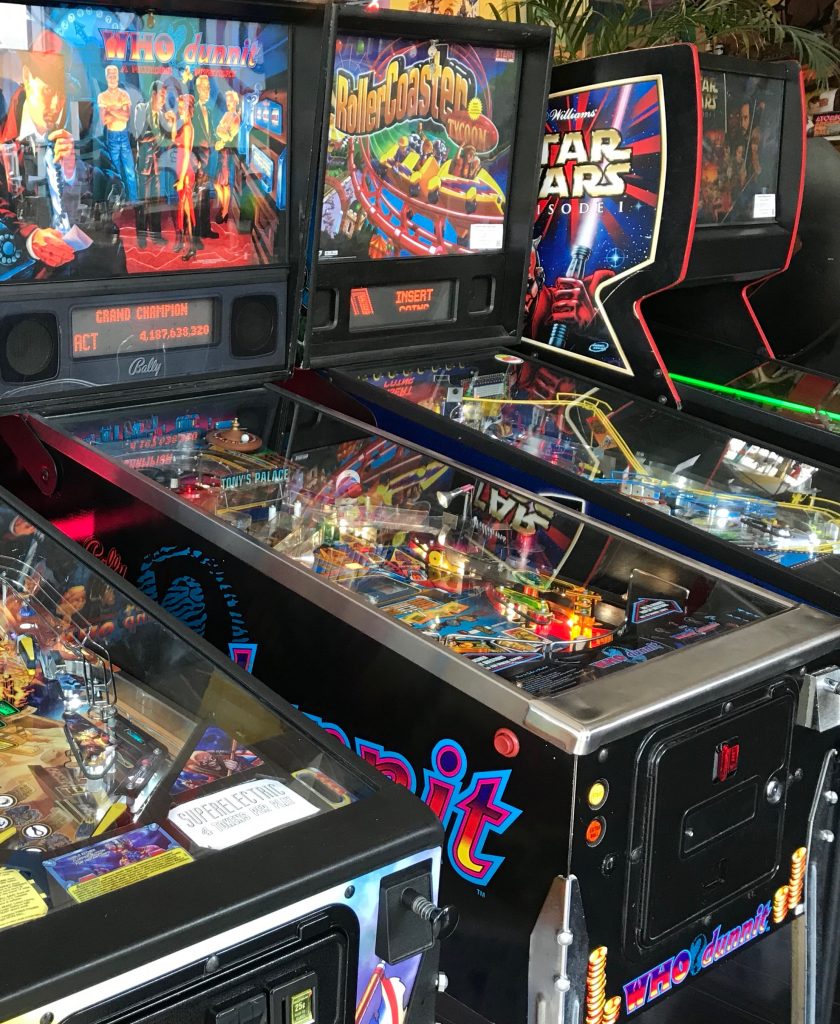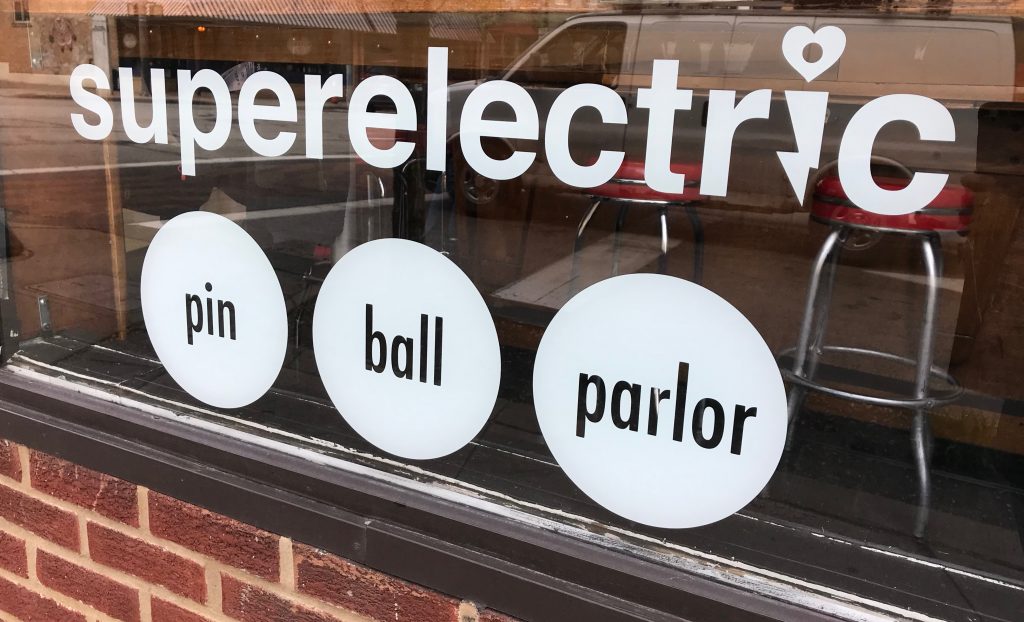When I was in junior high school a friend had an old fashioned pinball machine in her basement.
Almost forty years later, I still recall how exciting it was to keep that tiny metal ball in play. I’d thwack it with the flippers and watch it ricochet off the bumpers and thwack at it again. All the while, I was rewarded with bells, flashing lights and points! Keeping that shiny silver sphere in play was so much fun!
Pinball Mind isn’t the least bit fun. In fact, it’s kind of exhausting.

In Pinball Mind, an object of concern (maybe a project for work, or a desire to improve your relationship with your daughter, or a need to lose 25 pounds) becomes the shiny silver ball.
Your mind is the pinball machine.
The under-stimulated nature of the ADHD brain and its natural tendency towards seeking stimulation is the plunger. And, what a plunger it is! With essentially no conscious input from you, it’s capable of hurling your concern into the playing field of your mind with such velocity that you can’t seem to think of anything else. From there, the dinging and pinging and flashing of lights take center stage as the concern ricochets around in your mind.
If you have a lot of concerns you might find them being launched into the playing field consecutively or even concurrently, resulting in an overwhelming number of pings and bells and lights going off, which kicks up the overwhelm a notch.
Concerns are stimulating to the brain whether you have ADHD or not. Humans, because of their negativity bias, have a tendency to keep front and center those things that are bothering them. When you have an ADHD brain though, its continuous need for stimulation can encourage you to keep what’s ‘front and center’ in the spotlight long after the light should have been extinguished.
The nature of the ADHD brain to be easily distracted can actually be welcome when we’re stuck playing Pinball Mind, because it can lead to your ball dropping out of play more quickly.

There’s a fairly simple three-step strategy though that can help you release the flippers and end your game more quickly and more purposefully than a distraction.
Step 1) The first and most important step is acknowledging that you’re stuck playing Pinball Mind. Face it, if you don’t even know you’re playing, it’s hard to stop. If you’re already aware that you’re ruminating on one or even multiple concerns you should go directly to Step 2. If you’re one of the many however who upon reading this will realize for the first time you’re stuck playing this game, take comfort, because this awareness can be developed through coaching and heightened through the practice of mindfulness.*
Step 2) Your awareness in hand, your second step is acknowledging you’re unplugging the game. You do this by getting your concerns out of your head and capturing them elsewhere. Elsewhere might be a piece of paper, a document on your computer, or a note in your phone. Where is not important. What is important is taking your fingers off of the buttons on the side of the machine and allowing your concerns to drop from the field of play and into a list of some sort. I simply call mine “Things On My Mind.” You can call it whatever you like, just get those concerns documented and out of your head.
Step 3) The third step is committing to taking a next step. You’ll notice that I didn’t say creating a plan or dealing with the concern head on. This is because sometimes the concern is big and weighty and even a little scary. If it weren’t, you’d likely have dealt with it already, right? But what would change if you knew you only had to come up with and take the next step? That next step might not even end up being the “right” step or the “best” step, but it’s a step away from where you are now and you’ll likely learn something from it. Key here is you’ve taken a step and in doing so you’ve pulled the plug on Pinball Mind, at least for a while.
The idea of focusing on next steps can actually allow us to bypass Pinball Mind completely in the future. What if instead of getting hung up on the idea of having to create a plan for the entire work project you only needed to take a next step? What if instead of knowing exactly what you needed to do to lose 25 pounds you took the next step of looking up the number of a nutritionist? Next stepping reminds us that each project is nothing but a series of tiny steps and it helps keep us out of Pinball Mind.
Have you been playing Pinball Mind? With this awareness in hand, what’s one step you might take today to unplug your game so you can have a different experience? As always, I’d love to hear your thoughts.

Note: Special shout out and thank you to the folks at Superelectric Pinball Parlor at 6500 Detroit Ave in Cleveland for allowing me to take photographs of some of their vast selection of pinball games. Check them out at superelectric.tv
* If you’re interested in learning how you can build awareness or create a mindfulness practice contact me by clicking here.